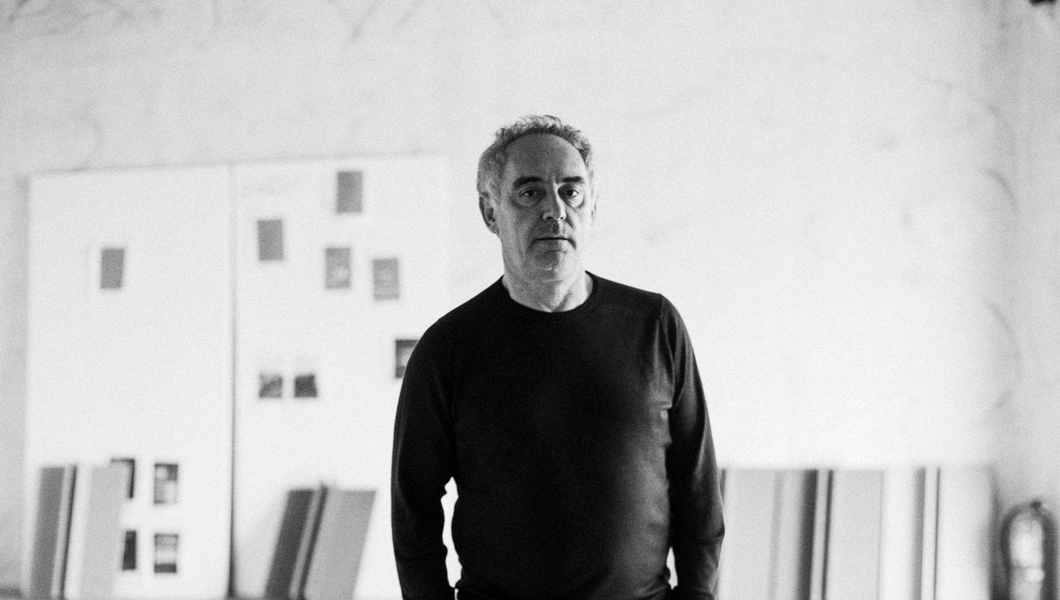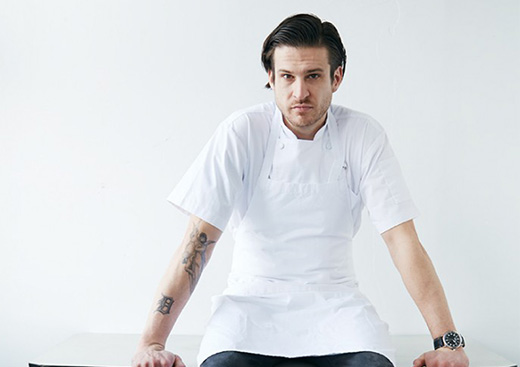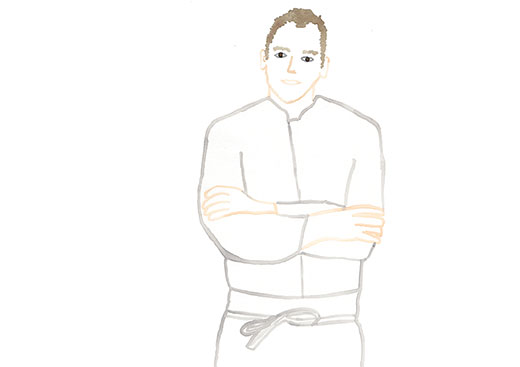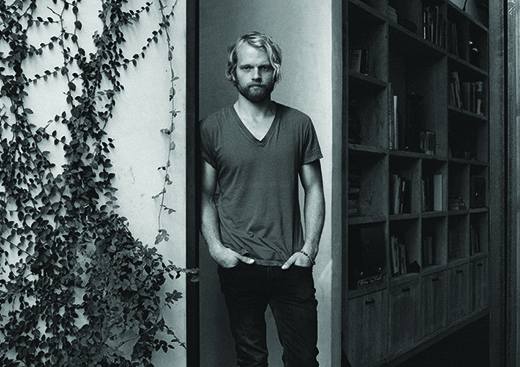FERRAN ADRIÀ NEVER INTENDED TO BECOME A CHEF, LET ALONE ONE OF THE MOST INFLUENTIAL OF OUR TIME.
But by the time the high school dropout worked his way up from washing dishes to earn extra money as a teen to a joint chef de cuisine position at Spain’s El Bulli in 1984, Adrià had already realized “my life would revolve around the kitchen”—an understatement if ever there was one. In the decades that followed, the Catalan chef not only racked up three Michelin stars and pioneered the modernist cooking movement but also landed the now-shuttered El Bulli on the map as the world’s most celebrated restaurant. And he’s just getting started.
Adrià might not have imagined his career path, but his unique approach and dedication to his craft has been nothing if not unwavering. In 1987—the same year he became sole chef de cuisine of El Bulli—Adrià attended a cooking demonstration by Chantecler chef Jacques Maximin, who stated “creativity means not copying,” a mantra that would shape Adrià’s innovative take on cooking and become the cornerstone for his world-renowned avant-garde cuisine. Familiar dishes and their ingredients took on new textures, temperatures and forms through his groundbreaking deconstructivist methods, most famously his oft-imitated nitrogen-infused culinary foams.
“When we created the foams, no one really knew us apart from the gourmets who came to the restaurant,” says Adrià, who never imagined himself at the forefront of a culinary renaissance. “I’ve always said it, I am a cook. I don’t have an education in science, even though I’m interested in scientific processes and methods in our research. And I am not an artist, although some may have that type of emotional response you get from seeing an impactful work of art at El Bulli.”
Perched on Spain’s Costa Brava overlooking the picturesque bay of Cala Montjoi, two hours north of Barcelona, the original El Bulli was the vision of a German homeopathic doctor and his wife, who, at the turn of the ’60s, had an idea for a mini-golf installation that quickly morphed into a beachside bar and then a restaurant. In 1976 the dining destination was decorated with its first Michelin star, followed by a second in 1983. That same year, a 21-year-old Adrià, fresh from military service, arrived for a one-month internship and accepted an invitation to join the team full-time the following season. There he remained for the next 27 years, forever altering the course of gastronomical history.
Open for only six months a year from June till December, the 50-seat establishment fielded more than 2 million reservation requests per season at its zenith. For the remainder of the year, Adrià and his team channeled their efforts into inventing new culinary techniques (think spherification, which enables liquid to be shaped into flavor-packed spheres, held together by a thin gel membrane), reimagining the role of ingredients in dishes (parmesan-flavored air) and dreaming up unconventional flavor pairings (bone marrow and oysters, anyone?).
“A cook works for the end result. At El Bulli we were always interested in the result but also the process,” says Adrià, often dubbed the culinary world’s Salvador Dalí. In 1997 the trailblazing restaurant garnered its third Michelin star, and from 2006 to 2009 it held the prestigious title of the world’s best restaurant according to the widely regarded British trade publication Restaurant. Adrià’s harshest critics called his cooking pretentious and in some cases unsafe due to its chemical components.
“The biggest pressure we felt at El Bulli was the pressure we put on ourselves—to innovate to the ultimate level and always satisfy our customers,” says Adrià. And while that steadfast commitment to creativity continued to inspire Adrià to redefine gastronomical boundaries, it also led him to shuttering the restaurant in 2011. Partly inspired by a desire for more balance in his personal life, the decision was also driven by Adrià’s desire to overhaul the restaurant concept and shift his focus toward culinary research and development. No surprise from a man who’s spent his professional life experimenting with form. Now the greatest challenge of his career still lies ahead, he says.
Since El Bulli turned off its stoves, Adrià has poured his creative juices into his El Bulli Foundation, a think tank based in Barcelona. “We’re hoping [it] will be a reference for all things concerning gastronomical research,” explains Adrià. This includes Bullipedia, an all-encompassing online encyclopedia devoted to gastronomical knowledge. The motivation behind it, he says, is the same line of thinking that brought him to ending El Bulli’s phase as a restaurant—“the conviction that if we want to keep being creative we need to make a big move, change our formula and no longer investigate directly in the kitchen, as would be practical, but by getting to know the world of gastronomy.” Additional concepts he’s currently working on include El Bulli 1846, a visitor’s center featuring an exhibition and kitchen space to be erected on the grounds of the former El Bulli restaurant, and El Bulli DNA, which continues Adrià’s quest of experimentation and creativity in the kitchen out of his El Bulli Lab. “We are now dedicating ourselves to cocinar conocimiento, which is ‘to cook’ knowledge,” he explains. “In this way, the ingredients we work with are analysis, reflection, classification, order—everything applied obviously to gastronomy.”
To critics past and present, Adrià’s reaction has always been “to keep working, to carry on the projects that I believe in so much” (though his greatest critic, he says, is “without a doubt” his wife, Isabel). And though his current endeavors don’t signal his return to the helm of his own restaurant anytime soon, his work in the tiny coastal gem that rocketed him to fame is not done. “The thing I’ve missed most is getting up every morning in Cala Montjoi,” says Adrià. “But I will work in that beautiful place again.”
—





